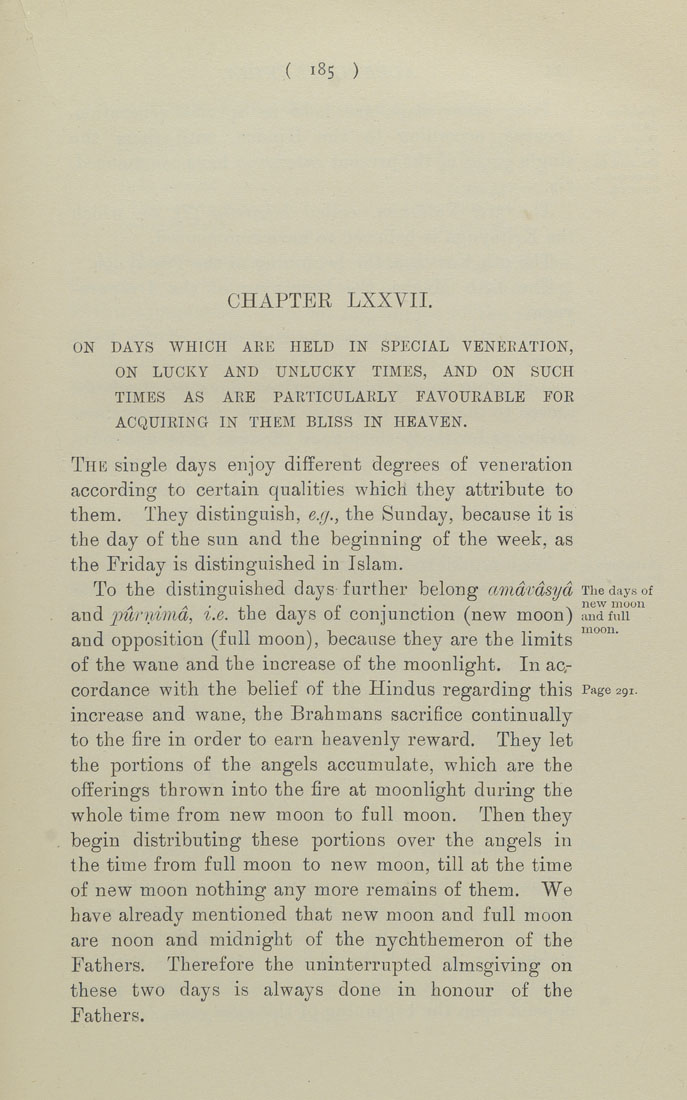Bīrūnī, Muḥammad ibn Aḥmad, Alberuni's India (v. 2)
(London : Kegan Paul, Trench, Trübner & Co., 1910.)
|
||
|
|
|
|
| Page 185 |

( i85 ) CHAPTER LXXVII. ON DAYS WHICH ARE HELD IN SPECIAL VENEEATION, ON LUCKY AND UNLUCKY TIMES, AND ON SUCH TIMES AS ARE PARTICULARLY FAVOURABLE FOR ACQUIRING IN THEM BLISS IN HEAVEN. The single days enjoy different degrees of veneration according to certain qualities which they attribute to them. They distinguish, e.g., the Sunday, because it is the day of the sun and the beginning of the week, as the Friday is distinguished in Islam. To the distinguished days further belong a,mdvdsyd The days of and pjurnimd, i.e. the days of conjunction (new moon) andfuu and opposition (full moon), because they are the limits of the wane and the increase of the moonlight. In ac¬ cordance with the belief of the Hindus regarding this Page 291. increase and wane, the Brahmans sacrifice continually to the fire in order to earn heavenly reward. They let the portions of the angels accumulate, which are the offerings thrown into the fire at moonlight during the whole time from new moon to full moon. Then they begin distributing these portions over the angels in the time from full moon to new moon, till at the time of new moon nothing any more remains of them. We have already mentioned that new moon and full moon are noon and midnight of the nychthemeron of the Fathers. Therefore the uninterrupted almsgiving on these two days is always done in honour of the Fathers. |
| Page 185 |







